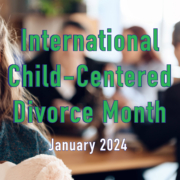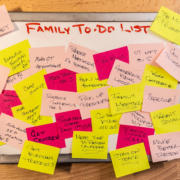Divorce Mediation: Let’s Talk About the Big Three Subjects (Video)
Whatever path brought you to consider or make a decision to divorce, mediation can be a cost-effective, powerful tool to help you through the separation and divorce process. It’s a process that provides structure enabling you to keep your needs, and the needs of your children, for the future at the center of the conversation.
In this video, we discuss the three major types of issues that are typically addressed in divorce mediation.
Feig Mediation Group helps parents, families and businesses create paths to more positive outcomes when important issues and decisions are on the line and communication can be most difficult. We have a particular focus on working with parents in neurodiverse families and issues involving adult families and aging loved ones.
If you wish to learn more about our practice, are considering mediation, or are interested in scheduling a free consultation, you can contact us at: erik@feigmediationgroup.com or through our website, at https://www.feigmediationgroup.com
Video Transcript:
Divorce mediation is a structured process designed to help you and your future ex-spouse resolve the issues you need to address when you’ve decided to divorce from each other.
Let’s take a brief look at the three primary sets of issues we typically address in divorce mediation.
Hi, I’m Erik Feig, mediator and founder of Feig Mediation Group in Bethesda, Maryland.
Whether you’ve been together for one year or for 25, the transition from one household to two can affect every aspect of your life and the lives of your children.
Mediation can be a powerful, cost-effective way to bring structure, order, and support to the process. In mediation, you, the experts who know your situation best, are the decision makers and are at the center of the conversation.
The process is there to help you stay focused on what’s important as you look to the future, instead of staying stuck in the past. In some cases, it can also provide a path for you to change how you engage with each other when important decisions are necessary in the future. By helping you work together now to navigate the sticking points that can be impediments to reaching agreements, you can create a new foundation for working together once you’re apart.
As a mediator, my role is to act as a neutral guide and to facilitate the process. I don’t take sides, I don’t have a stake in the outcome, but I do help you explore options and possible solutions, even when emotions may run high and it’s difficult for you to have these conversations without support.
So what are the big three sets of issues I mentioned?
First, if there are children, it’s parenting and developing a parenting plan, second, how you will allocate your property, your debts, and your liabilities, and third, spousal and child support.
Of course, this is high level.
Think of these as three containers with space to address the details of your specific situation.
There can be others as well.
So what is a parenting plan?
In essence, it’s a plan for how you will address important questions and decisions affecting the health, education, and well-being of your children. What this means for your mediation is that you would be talking, hopefully in a concrete, real-world way, about how your children will be spending time with each of you, how decisions affecting them will be made, and how you will handle the logistics of making it all work once you are divorced. It formalizes in divorce many of the same issues that were important to you when you were married.
For property, the issues center around how you will separate your assets and liabilities. For example, this could include your home, any investment properties, automobiles, your bank or brokerage accounts, and obligations such as mortgages, loans, and credit card debts.
Child support and spousal support is fundamentally a discussion about future financial needs, so being able to develop a sense of what those are and being able to talk about them is important to that discussion.
Let me mention a couple of other points. In divorce mediation, we may also spend time on questions about how you’ll handle taxes, insurance, and when things would happen. There can be space for all of that, as well as other issues that are unique to your situation.
I mentioned that mediation is a process. Working through these issues typically will take several sessions, but at the end of the day, a successful mediation can be the support that helps you reach a more positive outcome while keeping your and your children’s needs at the center of your conversation.
So if you’re considering mediation or are interested in learning more about our practice or if you want to set up a free consultation, feel free to visit us at our website at www.feigmediationgroup.com.
Thanks for joining me. I’m looking forward to seeing you next time.







 Feig Mediation Group, LLC
Feig Mediation Group, LLC 

